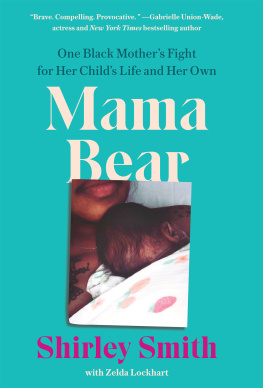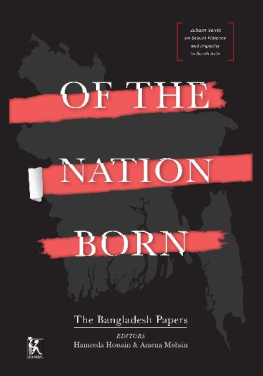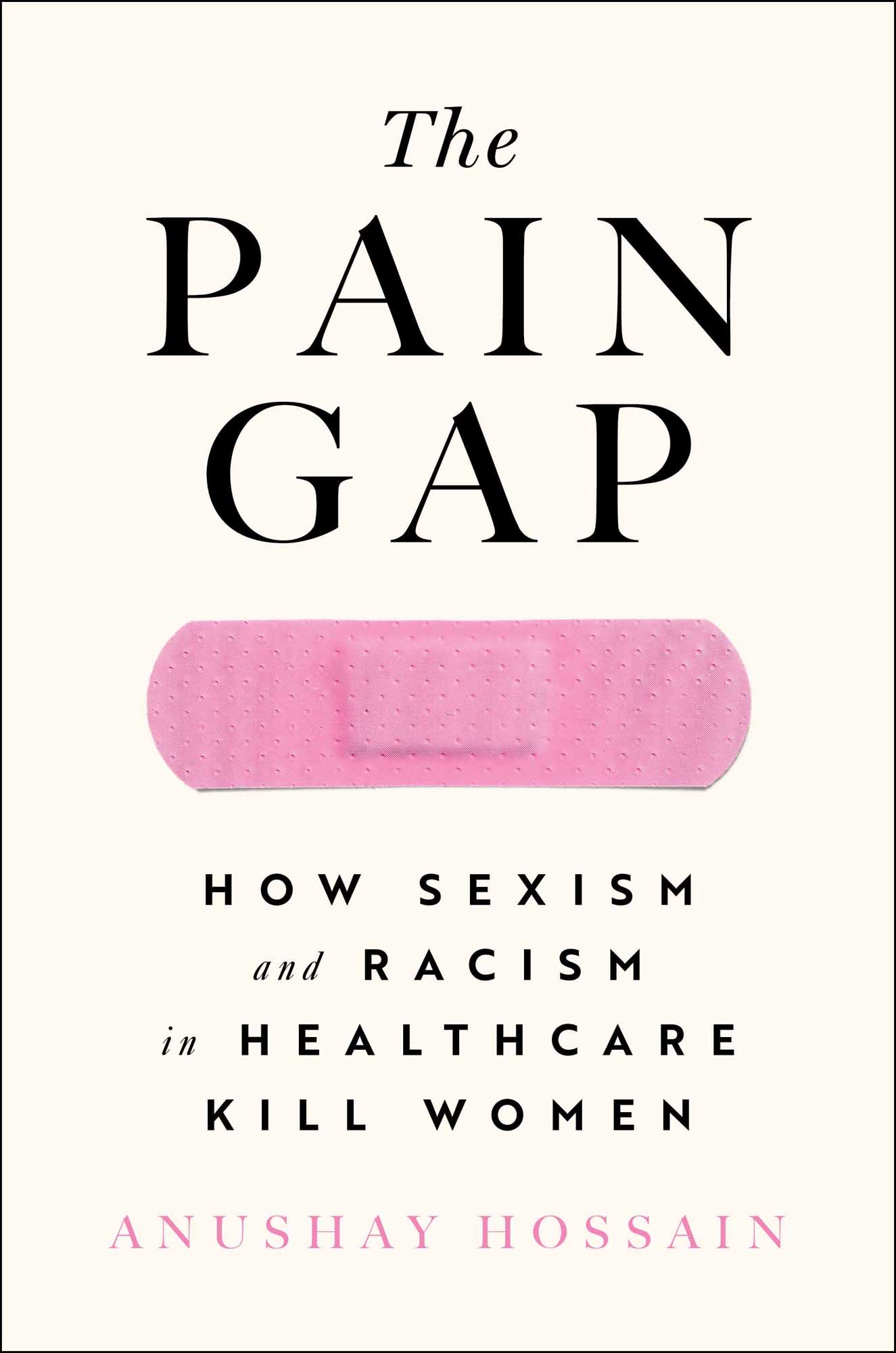Contents
Guide
The Pain Gap
How Sexism and Racism in Healthcare Kill Women
Anushay Hossain
This book is dedicated to my grandfather, Tofazzal Hossain Manik Miah, and to the love of my life, Shy Pahlevani, and our daughters, Ava and Layla.
Foreword Jessica Valenti
Ten years ago, I walked into my ob-gyns office for what I thought would be a normal exam. I was a little under twenty-eight weeks pregnant and due to get my glucose exam. Sure, I had noticed that my feet and face were quite swollenbut it was August in New York! Who wouldnt be a bit puffy? I felt okay and thought I was fine.
But when the nurse took my blood pressure, a look of concern came over her face. She called in my doctor, who took it again. They turned the lights off in the room, told me to lie down and relaxto try to calm downand that they would take my blood pressure one last time after five minutes.
It was after that third blood pressure reading that it became clear I was far from the healthy, glowing pregnant woman I imagined myself to be. My doctor told me I needed to leave her office and check myself into the hospital across the street. Dont stop anywhere, she said. Go right now.
Even after I was admitted a mere ten minutes later, my husband and I thought it all must be a flukea mistake of some kind. After all, I didnt feel sick, and we had months to go before our daughter was meant to be due. So when the head of obstetrics told us that I wouldnt be leaving the hospital until I delivered my baby, we were dumbstruck. I asked if I would really be in the hospital for three whole months. His reply landed like a punch to the gut: Well be happy if you make it a week.
I was diagnosed with severe preeclampsia, a dangerous condition that causes high blood pressure in pregnant womenif left untreated, it can lead to seizures and death. Soon, we were surrounded by different doctors and specialists, each trying to get more information while letting us know what to expect.
One older male doctor suggested that I might be sick because of a previous abortion, that ending a pregnancy could be a cause of preeclampsiasomething I found out later was absolutely untrue. Another man, who I had never been introduced to, came into my room at one point and stuck his fingers inside of me to see if my cervix was dilated. I never found out if he was a doctor, nurse, or why he needed to examine me at that moment.
I understood that things needed to move fast and that my health and pregnancy were in dangerbut my personhood soon became secondary to the flurry of people and decisions that were being made around me.
Within two days of being admitted to the hospital, I developed a much more serious pregnancy complicationHELLP syndrome. My liver was in danger of failing, and we had to deliver my daughter immediately in order for me to live. I was rushed into an emergency C-section, and Layla was born weighing just two pounds, two ounces.
The next twenty-four hours were as close to hell as I could imagine. We waited hours to find out if my daughter was going to be okay, and even once we knew she was stable I was too sick to visit her. The medication I was on had me so confused that I kept asking my husband what our daughters name was; I could hardly move because of the pain; and I was swollen with almost twenty pounds of water weight. (The swelling was so bad, in fact, that when a nurse tried to take blood her finger left an indent in my arm more than an inch deep.)
I thought I was going to die, and almost twenty-four hours after delivering, when I saw how little Layla was, I thought she was going to die, too.
In the end, miraculously, we were both all right. I slowly recovered, and so did Laylawho had to spend eight weeks in the neonatal intensive care unit. It would be three years before her lungs and immune system recovered, and even longer before I was reasonably over the trauma that came along with watching your child almost die with you close behind. If Im being honest, I dont know that I ever truly got over it.
This experience, this series of moments that shifted my life forever, is part of the reason Im so passionate about The Pain Gap and the issues it examines.
Its incredibly difficult to explain to people who havent been sick beforereally sickhow vulnerable you feel. How powerless you are. And how, in those minutes or days or weeks in a hospital or doctors office, you are at the mercy of the people around you. And while those experts and professionals are generally smart and kind, they are also humanand prone to the same foibles and biases as the rest of us.
Being a woman in America is already fraught; being a sick woman in America is doubly difficult. You arent believed, or youre condescended to. Your pain is treated as hysteria, your physical symptoms as signs of mental duress rather than authentic illness. For women who arent white, or straight, or upper middle class, the judgment is that much harsher and the consequences that much more serious.
My experience in the hospital was traumatizingbut I was still believed and taken care of. My illness was caught early enough to save my life and my daughters. My outcome would have been a lot different if I wasnt a white, well-off woman with insurance who was admitted to a prestigious and well-funded hospital.
Were in the middle of a maternal health crisis for Black women: mothers with the very same disease I had ten years ago are dying and their babies along with them. Their pain is being dismissed and their symptoms ignored. They are being called difficult and aggressive. They are dying of diseases that we know how to stop.
I cannot imagine, in the middle of the most painful and terrifying experience of your life, having to deal with the extra fear and burden of having to convince people that you are, in fact, sick. That you need help.
Thats why The Pain Gap is so importantit shines a light on the disparity of care in this country. And it shows women how they can best advocate for themselves and their loved ones.
Were living in a momentpostMe Too and post-Trumpwhen the issues impacting women are in danger of being brushed aside. But the urgency is far from over. And I cant think of a more vital and consequential place to start interrogating inequality than the spacesdoctors offices, hospitals, clinicswhere our literal lives are in other peoples hands.
As a general rule, all women are hysterical. And every woman carries with her the seeds of hysteria.
Dr. Auguste Fabre, physician, 1883
We are volcanoes. When we women offer our experience as our truth, as human truth, all the maps change. There are new mountains. Thats what I wantto hear you erupting. You young Mount St. Helenses who dont know the power in youI want to hear you.
Ursula K. Le Guin, author, 1986
Introduction
W hen I became pregnant in the United States, I was so relieved. Having grown up in Bangladesh in the 1980s, where the concept of womens health hardly existed and dying in childbirth was a common occurrence, I knew how lucky I was to be able to access the best healthcare in the world. I trusted the doctors and nurses implicitly with my health and my babys life.
I could not have been more mistaken.
Things went awry from the minute I got to the hospital, and after thirty hours of labor, three of which I spent pushing, my epidural slipped. My pain was so severe that I ran a fever of 104 degrees, and as I shook and trembled uncontrollably, the doctors finally performed an emergency C-section.








